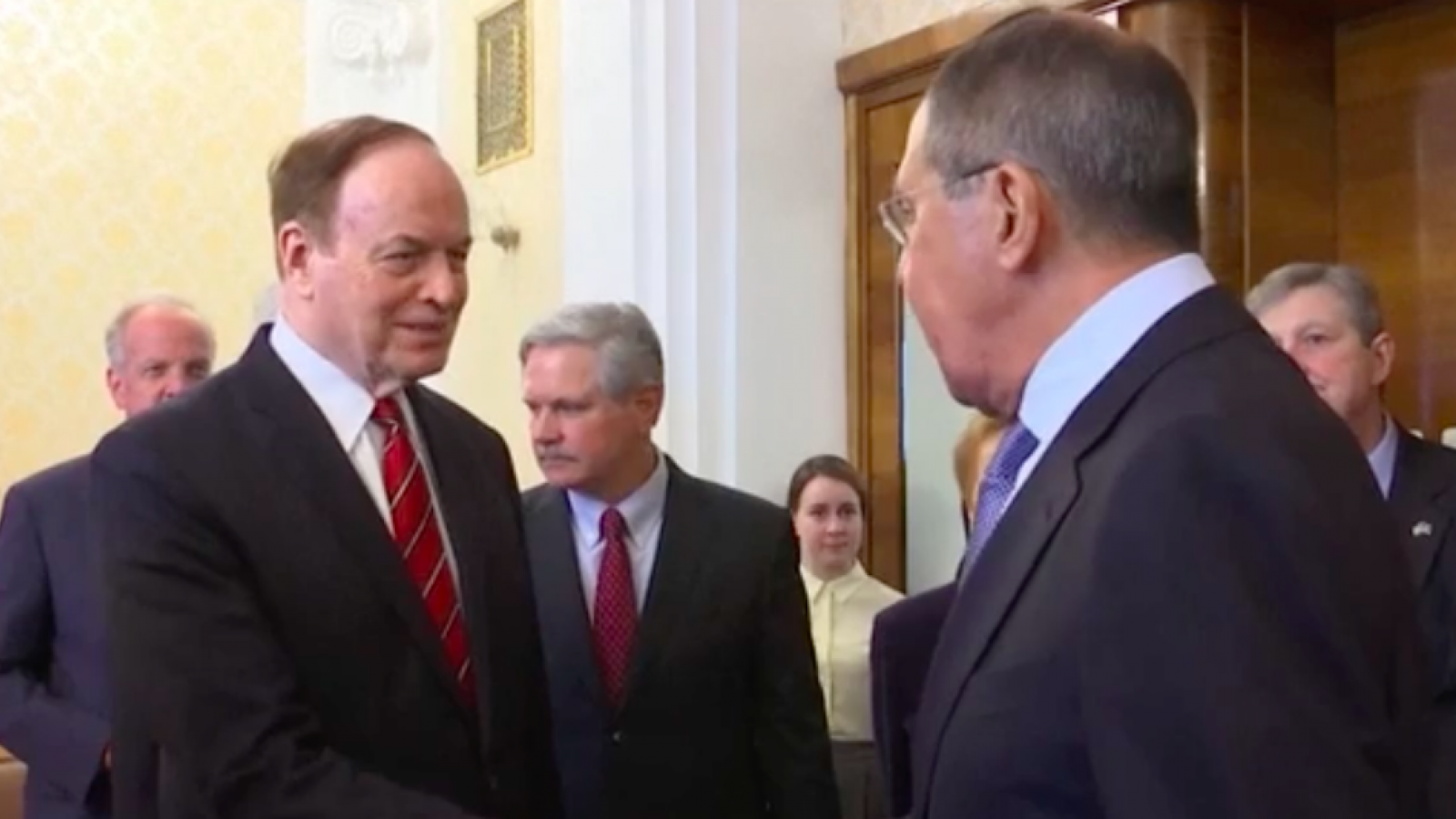
Republican Senators spending the Fourth of July in Russia appear to be downplaying – if not ignoring – the nation's role in attacking our democracy and its ongoing attempts to sow discord, undermine faith in our electoral system, and gain access to our power grid and nuclear facilities via cyber attacks.
Sen. Richard C. Shelby (R-Ala.) told Russia’s foreign minister that while Russia and the United States were competitors, “we don’t necessarily need to be adversaries.” Later on at the State Duma, the lower house of parliament, members attending a plenary session greeted the Americans with applause.
“I’m not here today to accuse Russia of this or that or so forth,” Shelby told Duma speaker Vyacheslav Volodin. “I’m saying that we should all strive for a better relationship.”
The Republicans’ meetings in Moscow — coming after the lawmakers visited St. Petersburg and took in the ballet “Sleeping Beauty” — helped set the tone for the July 16 Trump-Putin summit in Helsinki. Their Russian hosts said they hoped the Americans’ newfound willingness to meet marked a turning point after years of almost no direct contact between lawmakers in Washington and Moscow.
(...)
Among the Russians meeting with the Republicans on Tuesday was Sergey Kislyak — the former Russian ambassador to Washington whose communications with Michael Flynn led to the former national security adviser’s downfall. Kislyak, now a member of the upper house of parliament, noted in an interview after the meeting that many of the Republicans sitting across the table were already known to him from Washington.
(...)
Participants offered conflicting accounts of the degree to which they aired U.S.-Russian disagreements. Sen. John Neely Kennedy (R-La.) described the meetings as “damn frank, very, very, very frank, no holds barred.”
“I asked our friends in Russia not to interfere in our elections this year,” Kennedy said. “I asked them to exit Ukraine and allow Ukraine to self-determine. I asked for the same thing in Crimea. I asked for their help in bringing peace to Syria. And I asked them not to allow Iran to gain a foothold in Syria.”
Duma member Vyacheslav Nikonov, on the other hand, said he had met with many American lawmakers in years past and that this meeting “was one of the easiest ones in my life.” The question of election interference, he said, was resolved quickly because “the question was raised in a general form.”
Participants offered conflicting accounts of the degree to which they aired U.S.-Russian disagreements. Sen. John Neely Kennedy (R-La.) described the meetings as “damn frank, very, very, very frank, no holds barred.”
“I asked our friends in Russia not to interfere in our elections this year,” Kennedy said. “I asked them to exit Ukraine and allow Ukraine to self-determine. I asked for the same thing in Crimea. I asked for their help in bringing peace to Syria. And I asked them not to allow Iran to gain a foothold in Syria.”
Duma member Vyacheslav Nikonov, on the other hand, said he had met with many American lawmakers in years past and that this meeting “was one of the easiest ones in my life.” The question of election interference, he said, was resolved quickly because “the question was raised in a general form.”
“One shouldn’t interfere in elections — well, we don’t interfere,” Nikonov said.
U.S. intelligence officials have stated unequivocally that they believe that Russian agents sought to influence the 2016 presidential election. Trump has continued to cast doubt on those conclusions.
Full story: Republican lawmakers come to Moscow, raising hopes there of U.S.-Russia thaw (WaPo)